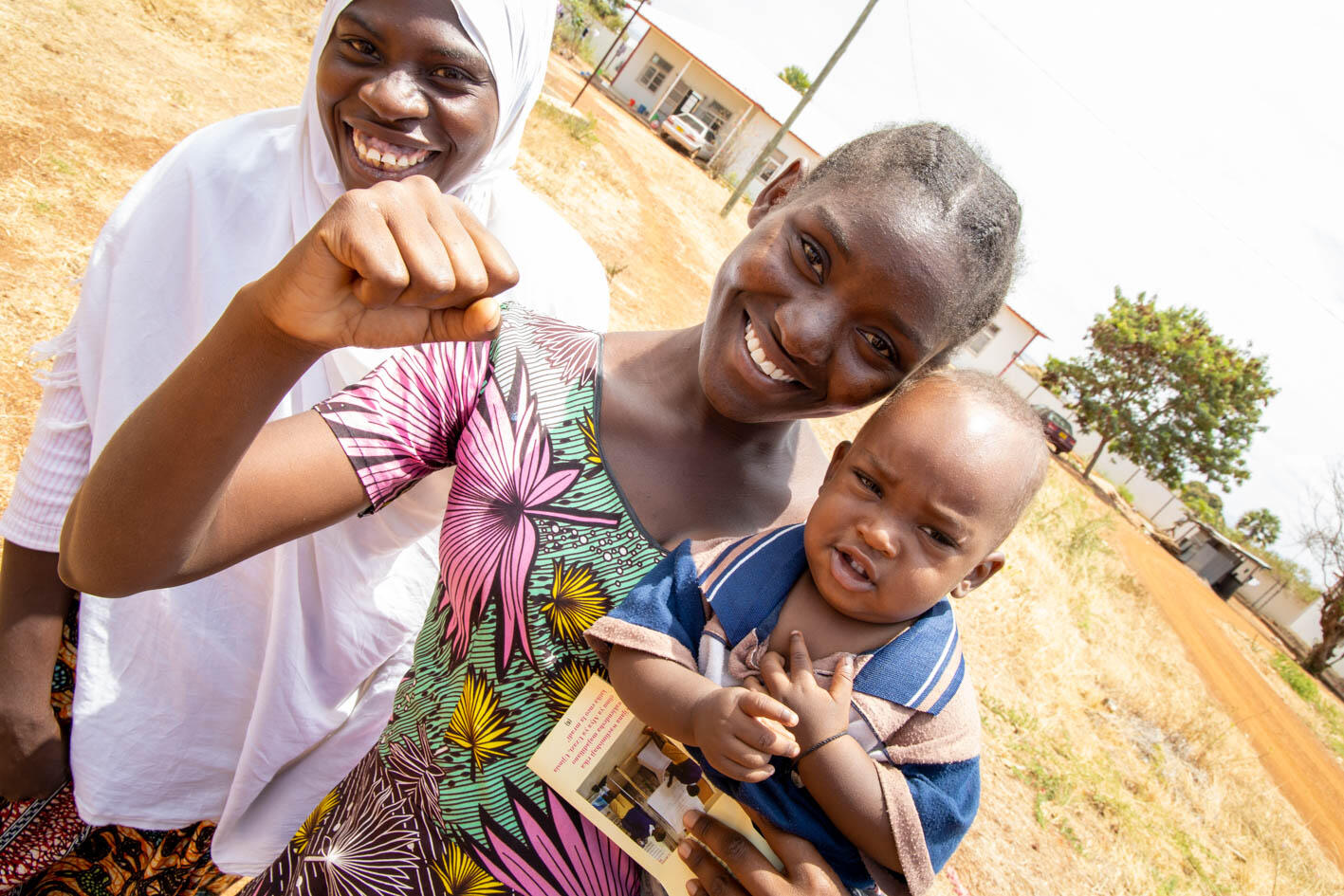The novel coronavirus disease (COVID-19), which has now reached Tanzania (both mainland and Zanzibar), may change the lives of many people in the country, but its impacts – both short- and long-term – could be felt most disproportionately by women and adolescent girls, with existing gender-based inequalities exacerbated by the outbreak. And, as with most crises, there is a danger that access to life-saving sexual and reproductive health services may become severely disrupted as resources are diverted away to respond to the disease outbreak at a time when women and girls need these services most.
As part of the national response, UNFPA Tanzania is working with the Government of the United Republic of Tanzania and Revolutionary Government of Zanzibar to contain and mitigate the spread of COVID-19, and is an active participant in COVID-19 preparedness and response efforts. We have identified US$495,496 which will be reprogrammed to support the national response including for the training of Rapid Response Teams – who have been working tirelessly to trace, test and isolate (as needed) suspected COVID-19 cases – and to effectively communicate with the public, communities and our local partners to help prepare and protect the health and well-being of individuals, families and communities during the pandemic.
In addition to our support to national efforts, and in line with our mandate, we are prioritizing the protection needs of some of the most vulnerable and marginalized women and girls and young people, including in the refugee camps and host communities in Kigoma Region. In the times of COVID-19, leaving no one behind has taken on a new urgency, and we will redouble our efforts to fulfil UNFPA’s mandate during the crisis – zero unmet need for family planning; zero maternal death; and zero gender-based violence (GBV) and harmful practices.
Pregnancy and birth will continue during the COVID-19 outbreak and, unlike other healthcare, access to antenatal, delivery and postnatal care services, including voluntary family planning, cannot be postponed. Gender-based violence (GBV) and harmful practices could be exacerbated by economic shocks and COVID-19 lock down measures and new ways to support survivors need to be found as existing systems become strained and movement restricted.
While fear and uncertainly are natural responses to the coronavirus it’s essential that people are guided by fact and solid information. We are supporting the Health Promotion Unit at the Ministry of Health to develop content for the toll-free National COVID-19 #199 Helpline – so that callers in Tanzania and Zanzibar, including pregnant women and those who are breastfeeding, can get accurate and up-to-date information about how best to protect themselves.
We will support our partners to hire and train expert counsellors to launch an online/phone counselling service for pregnant women and survivors of GBV, and will strengthen our support to the toll-free National Child Helpline #116 by developing clear guidelines on COVID-19 awareness and response. Additional counsellors will be hired to provide psychosocial support to girls and boys who are at risk of or have been subjected to violence, with strengthened referral pathways to other agencies, including the Police. We will also work with C-Sema, the operators of the Child Helpline, to develop a WhatsApp tool for adolescents and youth – they will be able to get answers to some of their questions in real time, helping them to protect themselves and uphold their rights – dedicated child helpline counsellors will monitor the chatbot.
To address the fear and concerns of health workers, primarily women, and to protect them as they continue to deliver sexual and reproductive health services on the frontline, we are working to ensure that they are provided with personal protective equipment (PPE) and armed with accurate information about COVID-19 protection and transmission. For both frontline workers and pregnant women, efforts will be supported to design and provide online psychosocial support.
In Kigoma Region – host to 244,376 refugees, some of the furthest behind – as part of coordinated inter-agency efforts, we will work to ensure that the delivery of comprehensive sexual and reproductive health services in the three camps continues, including through the provision of Reproductive, Dignity and post-rape treatment kits.
While it is too early to say what the long-lasting impacts of COVID-19 will be, UNFPA’s critical programme actions will seek to uphold the rights and choices of women and girls and young people wherever they live in Tanzania and Zanzibar, and ensure that progress towards national and global commitments to advance gender equality does not stall or reverse during the pandemic. While it is certainly not business as usual, the global goals and UNFPA’s three transformative results are now more relevant than ever and, together with our partners in support of both governments, UNFPA Tanzania hopes that we can turn this crisis into an impetus to achieve them and build back better.


